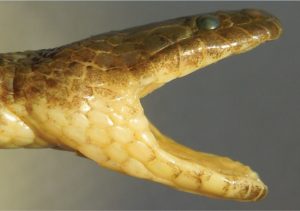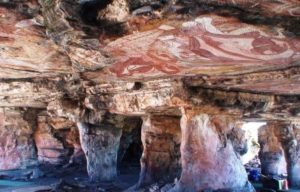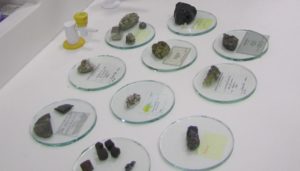
Listen ‘ere: Snake heads point to the past
The evolution of snakes has some fascinated twists and turns, and new research has found evidence even primitive snakes were adept at living underground and moving […]

The evolution of snakes has some fascinated twists and turns, and new research has found evidence even primitive snakes were adept at living underground and moving […]

Flinders will play a key role in a new $45.7 million Australian Research Council Centre of Excellence for Australian Biodiversity and Heritage. An international research team […]

For the first time a new technique will look to extract low-grade copper in an affordable and sustainable way to extend the life of some of […]
Scientists at Flinders are investigating the effects of global warming on native bees, including the common carpenter bee.
Palaeontologists argue the first snakes may have crawled from the sea.
A major collection of World War One mementos, kept for almost a century in the Museum of Victoria, is the subject of a new book ‘War Trophies or Curios?’, co-authored by Matthew Flinders Fellow in History Dr Christine Winter.
Flinders research is unearthing how the natural pigment ochre plays a significant role in Aboriginal culture and history.
Australia’s humanitarian effort in the Asia-Pacific is the focus of the first of 12 special Matthew Flinders Fellowship projects to mark the University’s 50th anniversary this year.
Australian museums and Outback fossickers can thank the events of 100 million years ago for their fossil treasures and high-quality opals, says Flinders science writer Danielle Clode.